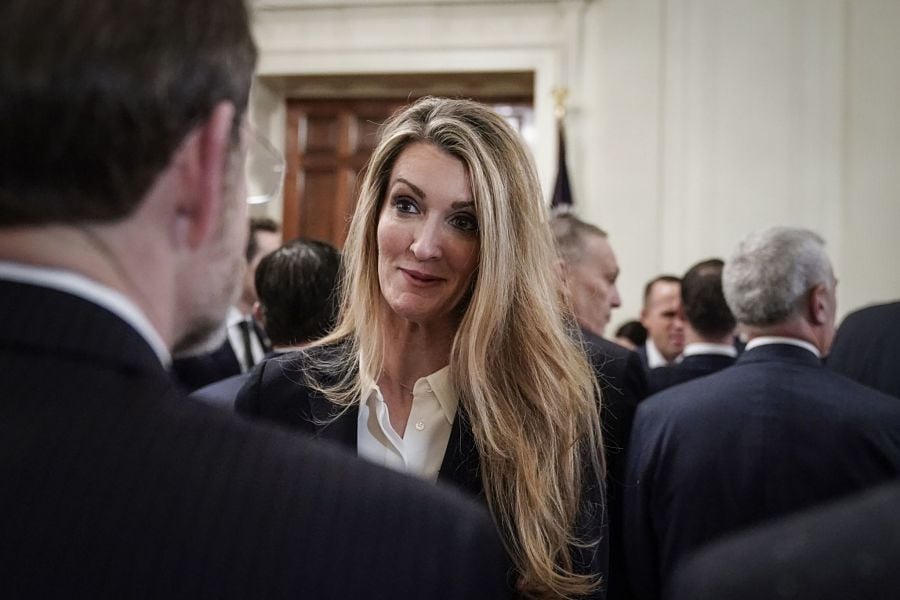

Lawmakers who are under suspicion of insider trading over stock sales they made following briefings about the potential catastrophic impact of COVID-19 can’t rely on the fact that they use a financial adviser to escape scrutiny, experts say.
Sen. Kelly Loeffler, R-Ga., is one of the members of Congress who has drawn attention because she sold and purchased hundreds of thousands of dollars of stock following her participation in a Jan. 24 committee meeting with administration officials. Her market moves, outlined in a Senate disclosure, were first reported by The Daily Beast.
In an interview on Fox News Monday, Loeffler said that she and her husband, Jeffrey Sprecher, chairman of the New York Stock Exchange, have no discretionary authority over their accounts.
“I’m not involved in the decisions around buying and selling,” Loeffler said in a transcript posted by her staff. “There’s a range of different decisions made every day with regard to my savings and 401K portfolios that I’m not involved in. No longer do my husband and I have the ability to do discretionary trades, and that’s why it’s outsourced to third-party investment managers.”
But using a financial adviser doesn’t go far enough to escape insider trading suspicion, said Thomas Gorman, a partner at Dorsey & Whitney. A “foolproof” defense would involve putting assets into a blind trust or using an automated trading program.
“There’s no real assurance that she had no input” to her financial advisers, said Gorman, a former senior counsel in the Securities and Exchange Commission's Division of Enforcement. “This suggests that she maintained a modicum of control. If you did, that doesn’t give you safe harbor. Not taking the safe approach raises real questions.”
Other lawmakers have also generated controversy with investment sales that occurred after they talked to administration officials about the coronavirus outbreak that has devastated financial markets. The Center for Responsive Politics first reported on market activity by Sen. Richard Burr, R-N.C., that has drawn criticism for potential misuse of insider information.
Burr and the other legislators have denied wrongdoing. But Craig Holman, a government affairs lobbyist at Public Citizen, a watchdog group, said that if they made investment decisions based on “nonpublic information,” they violated a 2012 law known as the Stock Act, which prohibits insider trading by members of Congress.
Holman said lawmakers should cede control of their finances while in office.
“Members of Congress could easily sidestep these questions of potential insider trading if they placed their funds in a qualified blind trust,” he said.
Holman, who was a leading advocate of the Stock Act, thought the measure would curb legislators’ participation in portfolio decisions. But he said one-third of the Senate continues to buy and sell securities.
“Much to my surprise, there are a number of senators who seem unconcerned about the appearance of insider trading,” Holman said.
The SEC likely will look into the insider trading allegations on Capitol Hill, Gorman said.
“This will get on the SEC’s radar,” he said. “You’re supposed to be doing the public’s business, not making yourself money.”

Relationships are key to our business but advisors are often slow to engage in specific activities designed to foster them.

Whichever path you go down, act now while you're still in control.

Pro-bitcoin professionals, however, say the cryptocurrency has ushered in change.

“LPL has evolved significantly over the last decade and still wants to scale up,” says one industry executive.

Survey findings from the Nationwide Retirement Institute offers pearls of planning wisdom from 60- to 65-year-olds, as well as insights into concerns.
Streamline your outreach with Aidentified's AI-driven solutions
This season’s market volatility: Positioning for rate relief, income growth and the AI rebound
